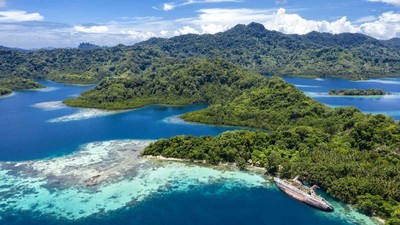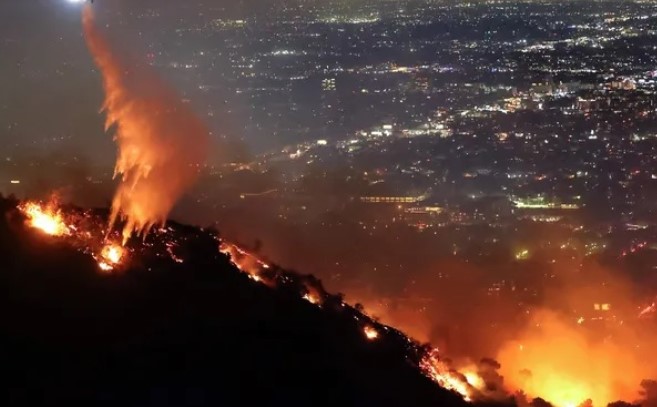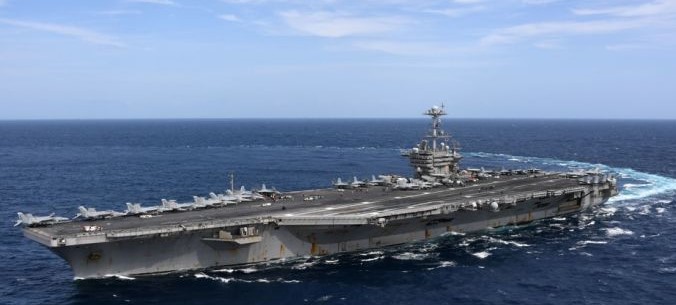
STRATEGIC ASSESSMENT, A draft security agreement between the People’s Republic of China (PRC) and the Solomon Islands was leaked online. The agreement paves the way for Chinese law enforcement and police to be deployed to the Pacific Island nation to assist with “maintaining social order,” while also granting access to Chinese troops and naval ships. Both the United States and Australia—the latter of which is the Solomon Islands’ dominant security partner—quickly responded to the reports of the draft security pact expressing concerns about how it would impact the security landscape of the region, especially if it would allow for a Chinese military base in the country. A week later, the Prime Minister of the Solomon Islands, Manasseh Sogavare, confirmed the existence of the draft agreement and said that it would be “cleaned up” and signed soon. Sogavare, however, disputed the reports and fears that the agreement would allow for the establishment of a Chinese military base—something that could significantly impact the United States and its allies in the region by granting China a strategic military foothold closer to not only Australia and New Zealand, but also Guam and Hawaii.
The security pact also raises concerns about how increased Chinese influence will impact the sovereignty and stability of the Solomon Islands. The agreement has been criticized as broad and vague. Others have commented on the lack of transparency and what that could portend about the agreement. Since its independence in 1978, the Solomon Islands has suffered from frequent domestic tensions that have erupted into unrest and riots, most recently in November 2021. This unrest was partly in protest of China’s increasing influence in the country. After the 2019 election of Prime Minister Sogavare, the Solomon Islands officially severed diplomatic ties with Taiwan in favor of Beijing. While Australia has historically occupied the role as the Solomon Islands’ primary economic and security partner, the country has increasingly inched closer to China economically through infrastructure deals and other economic agreements. Domestic and international critics of the PRC-Solomon Islands security pact not only fear that it would provide China with military inroads into the country and region, but also guarantee the Chinese protection of Sogavare and his government in the case of popular unrest. If the final agreement reads anything similar to the draft version, it effectively allows China to deploy law enforcement, paramilitary police, and the military on the beckoning of Sogavare to maintain civic order—something that could prove detrimental to the country’s sovereignty while providing Beijing with an increased security presence in the region.
The Solomon Islands occupies a key geostrategic position in the South Pacific. In fall of 1942, a destructive World War II battle was fought in the Solomon Islands between U.S. and Japanese forces. The President of neighboring Micronesia recently wrote to Prime Minister Sogavare expressing “deep concerns” about the agreement and reminding him of the history of great power competition in the region. Whether the security pact paves the way for a Chinese military base in the Solomon Islands remains unclear. But there is no misunderstanding Beijing’s aggressive foreign policy, which is designed to gain geostrategic ground in the Indo-Pacific—from Papua New Guinea to Sri Lanka—leading to growing concern for the United States and its allies. The Solomon Island sits on sea-lane routes that are critical to Australia for communications and shipping. A Chinese military presence in the country could significantly threaten Australia, New Zealand, and other Pacific nations’ national security, block critical shipping routes throughout the South Pacific, and allow for military intelligence activities against the U.S. and its allies.
The PRC-Solomon Islands security pact is yet another example of how Beijing gradually increases its economic and security influence in the Indo-Pacific by targeting the elites of a country, while U.S. diplomacy and foreign policy falls short in any strategic gains or countermeasures. Experts have criticized the United States for its slow response in ramping up diplomatic and strategic engagements in the South Pacific. In February 2022, the U.S. announced that it will re-open an embassy in the Solomon Islands, which has been closed since 1993. This week, U.S. National Security Council Indo-Pacific Coordinator and Assistant Secretary of State for East Asian and Pacific Affairs are leading a delegation traveling to the Solomon Islands, in addition to Fiji and Papua New Guinea, for an unusual high-level visit. While these efforts indicate that Washington is clearly awakening to the potential gravity of China’s inroads in the South Pacific, it is imperative that U.S. foreign policy not be purely reactive to the actions of the PRC. One of the primary concerns of South Pacific nations is the threat of climate change. It is important that the United States creates sustainable, beneficial, and cooperative foreign policy mechanisms to address the security and economic concerns of allies and partners in the region, instead of framing policy purely through a lens of strategic competition with China (TSC).
Photo by, Google map





